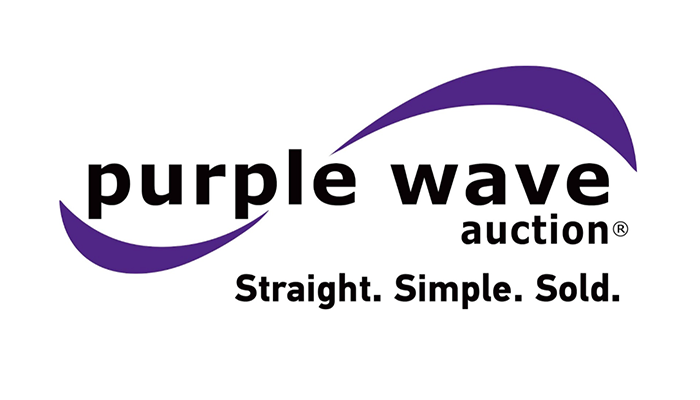In 2000, Aaron McKee, CEO at Purple Wave, and his wife Suzy McKee established Purple Wave as a full-service auction company. Back then, the company sold everything from real estate to personal property.
In 2002, the Kansas-based startup started listing the assets online for promotion, and the team quickly learned that having bidding options online made the process a lot easier and affordable for buyers and sellers, as well as Purple Wave itself. In 2008, the team pivoted the business model and started focussing 100 percent on selling equipment and vehicles in online-only auctions.
“We kind of repurposed the buyer community that we had built around live auctions and made everything completely online,” said McKee.
How Purple Wave works
Purple Wave is now the region’s largest online no-reserve bidding engine that sells construction, agriculture, and fleet equipment. The company focuses on providing the easiest way to buy and sell used equipment quickly and efficiently.
From marketing and listing assets to selling and collecting payment, Purple Wave offers a full-service experience to sellers. Purple Wave also operates as the clearinghouse for all of the transactions between the buyers and sellers, and does not require equipment to be moved from the seller’s location, which saves the seller time and money.
Building a strong buyer community
McKee explained that it’s difficult to sell assets at no-reserve unless the auction company has a large and loyal buying pool. He said that having a this type of buying pool guarantees that sellers will get a fair price every time they sell an asset.
“We’ve built our buyer community through selling assets as we moved up from a low dollar per average lot to a much higher one,” said McKee. “We started out averaging $10 to $15 per item we sold, and now we are at about $4,000 per item we sell.”
Purple Wave also guarantees that every item that comes into their marketplace is sold to someone who is not the seller. McKee said that this process gives buyers more confidence in the marketplace, and it is why they have built such a big buyer community.
“If the item is listed on Purple Wave, buyers know that the item is definitely going to sell to the buyer with the highest bid,” said McKee.
McKee added that Purple Wave uses a combination of trusted and experienced territory managers, and integrated online tools created by Purple Wave, to establish used equipment value. He added that the online tools also help Purple Wave market additional equipment to previous buyers.
“We use a lot of machine learning and recommendation engines to tailor all of the marketing of of our inventory to individual customers,” said McKee. “When you know what your customer specifically wants, you’re able to do a lot more quality work at a far less cost, which will help your company scale.”
Steadily growing and gaining profitability
McKee said that Purple Wave currently serves over 300,000 unique visitors and 700,000 unique sessions per month, most of which are from the Midwest.
He added Purple Wave has been through several different types of financing; however, the startup is getting close to being privately held equity. McKee credits a portion of the company’s recent success to being a member of the Pipeline fellowship last year.
“There is a big element of trust that goes into the Pipeline organization,” said McKee. “It’s an open and safe sharing environment, which made it easy for me to take away a lot of great advice.”
What’s next for Purple Wave
When asked what the future looks like for Purple Wave, McKee said that the team plans on geographically growing in the next few years.
“We’ve been focused on the Midwest, but we are really focused on becoming a national brand,” said McKee. “We are being really careful as we grow, so that we can build the proper buying community it takes to support the no-reserve assets policy as well.”
—
Mel Lucks is a regional freelance journalist and former intern for Silicon Prairie News and AIM.





